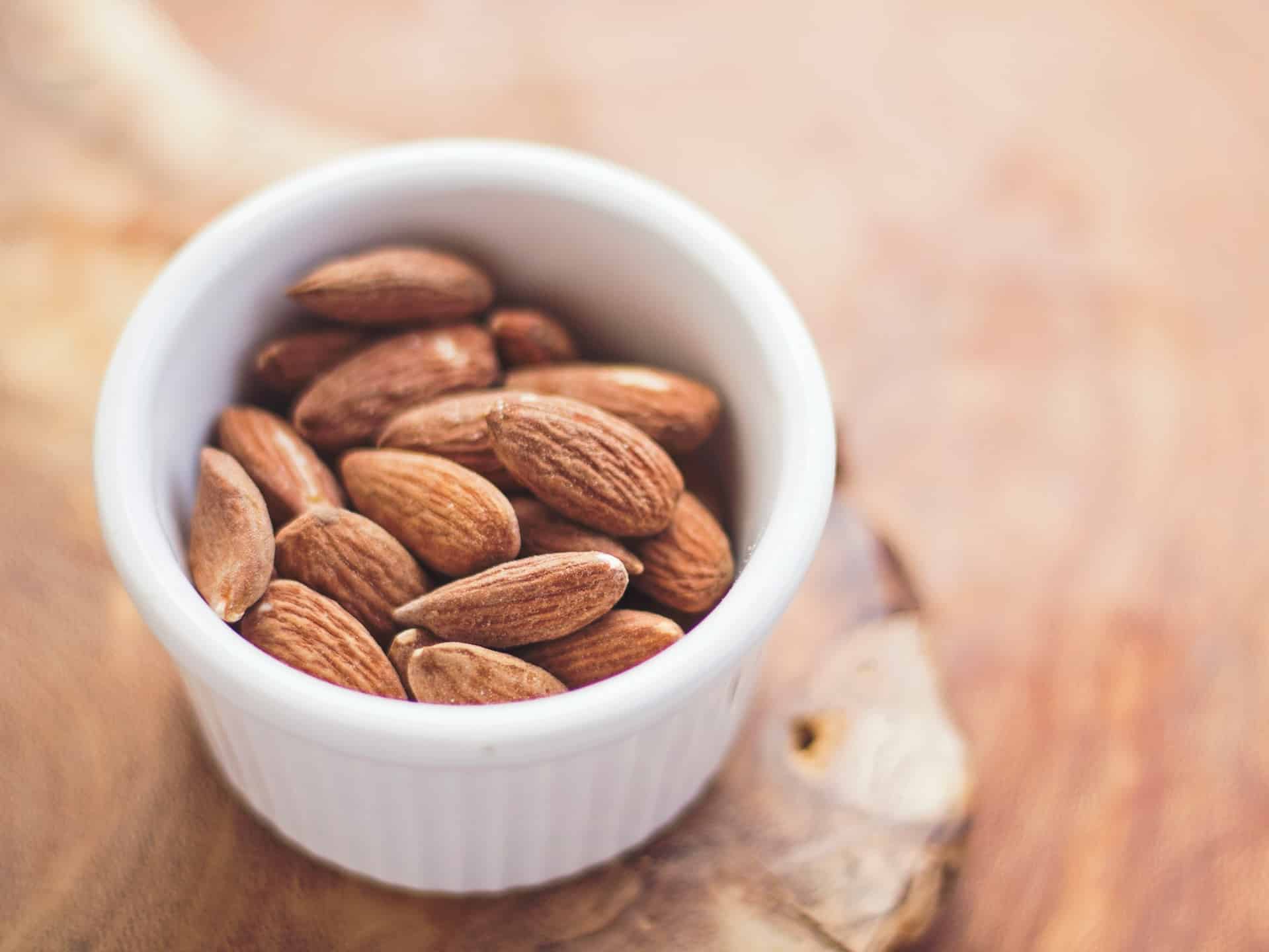
Spaniards consume 82,000 tons of almonds a year, a nutritional treasure with scientifically proven health benefits. However, to take advantage of these properties, they should be eaten in moderation and in their toasted or natural form.
What are almonds?
This brown, hard-shelled, tear-shaped fruit grows on the almond tree. At the end of winter and beginning of spring, this tree produces white and pink flowers that become the prized nut. Our country is the second largest producer of almonds worldwide, after the USA. At the national level, it is the most produced nut (87%), followed by pistachios (7%), hazelnuts (2%) and walnuts (1%).
Origin and varieties
The origin of the almond is located in Asia, in the Middle East region. It arrived in Spain more than 2000 years ago at the hands of Phoenician traders. «There are hundreds of varieties of almonds, many of them are sweet, but some are bitter. More than 100 varieties are cultivated in Spain, although currently there are about a dozen that are most commonly grown throughout the country. The Marcona variety of almond stands out for its quality,» says dietician-nutritionist Raúl Zamora, principal investigator of Nutrition and Cancer at the Catalan Institute of Oncology (ICO) and member of the Spanish Academy of Nutrition and Dietetics.
Marcona is a variety in high demand due to its excellent flavour, texture and higher oleic acid content. It is the favourite of the high-quality nougat industry. Other very common traditional varieties are Guara, Comuna and Largueta.
How many almonds can you eat a day?
“Nutritional recommendation is a handful of almonds a day«The equivalent of about 30 grams, approximately 20-25 almonds,» says Raúl Zamora. Like the rest of the nuts, they are a very caloric food, although almonds are among the lowest in calories. «They contain about 580 kilocalories per 100 grams. To establish a comparison, we can say that macadamia nuts can reach 718 kilocalories. Although it is not healthy to eat a lot of any food or a specific food group, high consumption of almonds is not associated with too many health problems.»
The biggest problem that could result from excessive consumption of almonds is weight gain. “On the other hand, moderate consumption, limited to a handful of almonds a day, has been shown to helps maintain weight and may prevent long-term weight gain,» among other benefits.
Do almonds at night help you sleep?
Eating them at night, just before going to sleep, does not necessarily lead to weight gain. Ultimately, the expert stresses, weight gain depends on the complex overall energy balance, the calories consumed throughout the day compared to those used, as well as a wide variety of factors, such as genetics.
Almonds, especially raw ones, are a dietary source of melatonin, a hormone known for its important role in sleep. Despite this extra dietary contribution of melatonin that almonds provide, there is still no scientific evidence that they will help us sleep better.

Nutritional properties of almonds.
Almonds, like any dried fruit, are characterized by their high content of healthy fats, proteins, fiber, some minerals (calcium, magnesium, potassium, zinc and phosphorus), and some vitamins (E, folates, niacin and B).2), and bioactive compounds such as (poly)phenols and phytosterols.
“In particular, almonds contain less fat and more fibre than other nuts, such as walnuts, hazelnuts or pistachios. Their fat content is similar to that of olive oil, with a majority of monounsaturated fatty acids (oleic acid, 60-70%) and polyunsaturated omega-6 fatty acids (linoleic acid, 20-30%),” explains the specialist. The big difference with walnuts is their low content of polyunsaturated omega-3 fats (linolenic acid), which are the most studied for their potential beneficial effects on the blood vessels and brain. Walnuts contain between 10 and 13% of these fats, while almonds contain less than 0.5%.
Due to its high calcium contentAlthough it is less bioavailable than in dairy products, it is a very interesting plant source of this mineral. Zamora points out that “this makes almonds a particularly valuable food for people who follow vegetarian and vegan diets” or who do not consume dairy products regularly. Remember that calcium is an essential mineral for maintaining bones in normal conditions, being one of the various dietary components associated with a lower risk of osteoporosis in older people.
Better raw than fried
But are all these benefits also applicable to sugared almonds or nougat? The nutrition expert is clear: “The best choices are raw or unsalted toasted almonds, since we do not need to consume so much salt or the fat from frying.” As a general rule, in all nuts and in the specific case of almonds, all their healthy properties are applicable to their natural or toasted version.
Salted, fried or sugary versions, which are very palatable, often reduce some of these nutrients, while gaining calories from added sugars and fats. Depending on the frying oil and its quality, these added fats can be of poor quality and facilitate oxidation. Raúl Zamora also reminds us that “there are not many differences between raw and toasted almonds. While raw almonds are more sustainable (they are not toasted) and have more micronutrients (especially vitamins that are labile when cooked), toasted almonds tend to be more digestible.”

Benefits of eating almonds
Cardiovascular health
“Consumption of a Mediterranean diet enriched with nuts, including almonds, has been associated with a Better cardiovascular healthreducing the risk of major cardiovascular events (heart attack, stroke and cardiovascular death) by around 30% compared to people who did not follow this type of diet rich in nuts,» says Raúl Zamora.
Lower risk of type 2 diabetes
There is similar scientific evidence for the reduction of type 2 diabetes, with up to 50% reduction. Specifically, PREDIMED study conducted in Spain, showed that those participants who ate a Mediterranean diet including nuts in their daily menu had a lower risk of developing type 2 diabetes than participants who simply followed a low-fat diet, but without consuming nuts.
Reducing the risk of cancer
It has also been observed a lower risk of some types of cancerespecially colorectal cancer, although the evidence is not yet as clear as for cardiovascular health. Another of its beneficial effects is the modulation of the intestinal microbiota. «Currently, it has been observed that a healthy microbiota is capable of decreasing the risk of several diseases, reducing low-grade inflammation and promoting the immune response,» says the dietician-nutritionist.
Culinary uses of almonds
An easy and healthy way to include almonds in our diet is to add them to salads, sauces (for example almond sauce), dressings and crushed (chopped).
¨It is important to note that almonds are used as main or secondary ingredients in many traditional desserts (e.g. nougat, panellets, almond cake, Santiago cake, marzipan, sugared almonds, etc.), energy bars, some snacks, chocolate with almonds, biscuits, cakes and pastries”. These products often contain a lot of added sugars that increase their calorie intake. In addition, some are ultra-processed, and therefore should be consumed in small quantities and only occasionally (biweekly or weekly).
Finally, we also have almond-derived products, such as almond flour, almond cream, or almond vegetable drink and its fermented versions, such as almond “yogurt”, which are increasingly popular. “They are very interesting options for people with lactose intolerance or who do not consume dairy products for some health reason, although their composition is not the same and, therefore, they are not comparable products, because they lack proteins, usually have added sugars, and do not always provide a similar amount of calcium to dairy products.”
The ALDI Council
Nuts are delicious, but they are allergenic for many people. If you have guests over, ask everyone if they have any allergies before adding them to any dish.

Raul Zamora Ros. Principal Investigator at the Bellvitge Biomedical Research Institute (IDIBELL) and Associate Professor at the University of Barcelona. He has training in the field of Nutritional Epidemiology, where he obtained a PhD at the University of Barcelona. He has completed several postdoctoral stays at IDIBELL, the International Agency for Research on Cancer (IARC, France) and the University of Cambridge (UK), before joining his current position as Principal Investigator at IDIBELL since 2016. His research focuses on investigating whether dietary factors, especially polyphenols and polyphenol-rich foods, are causally associated with the development of chronic diseases. He is co-author of more than 145 scientific articles (>5,500 citations, H index= 46) and more than 10 book chapters in his area.







